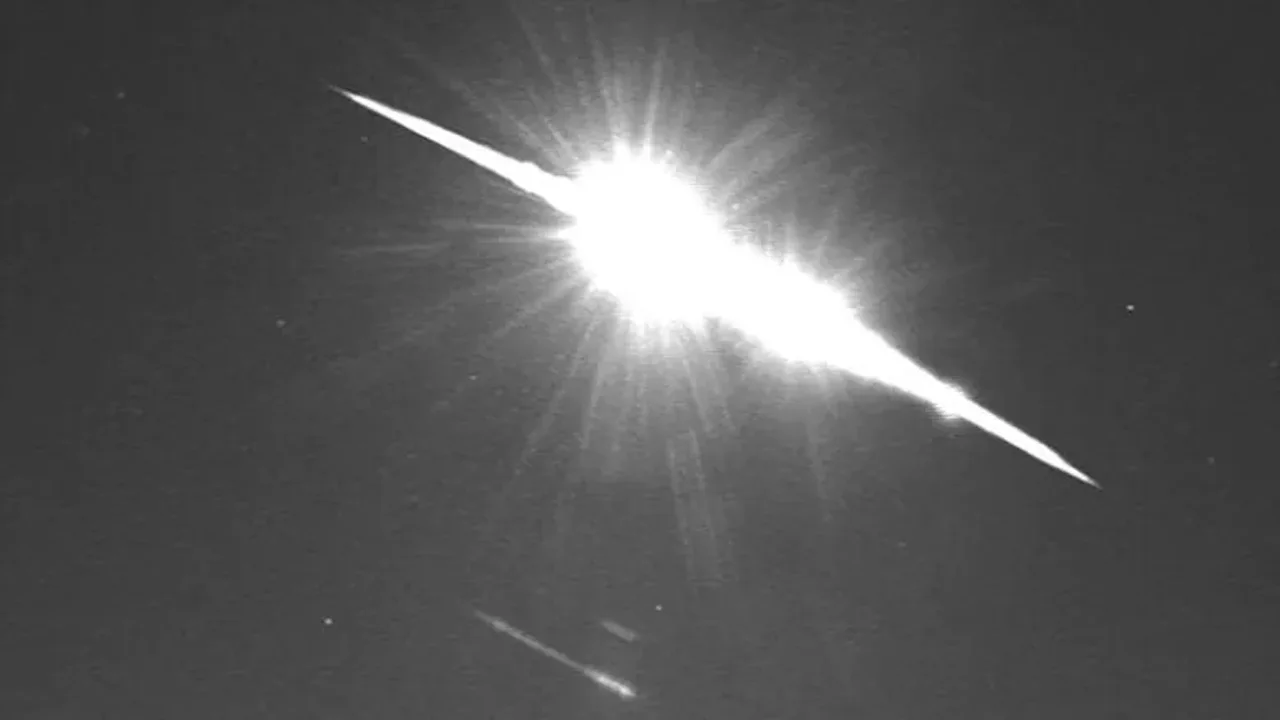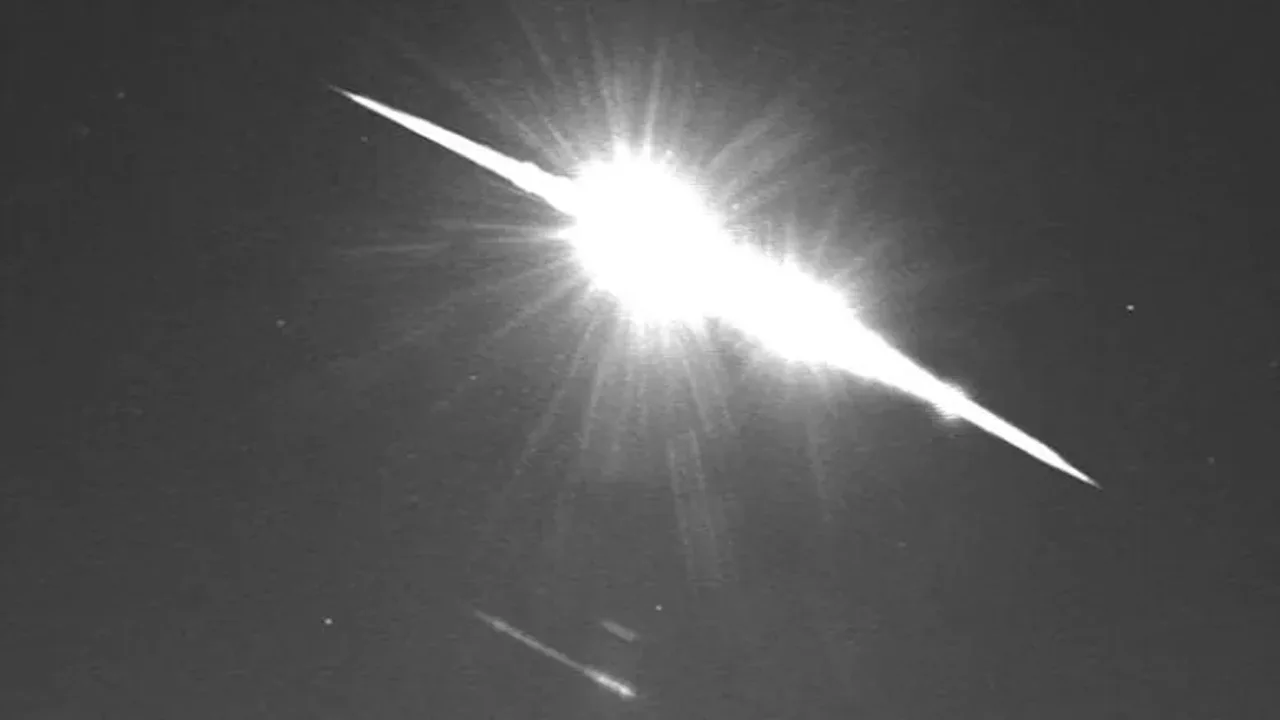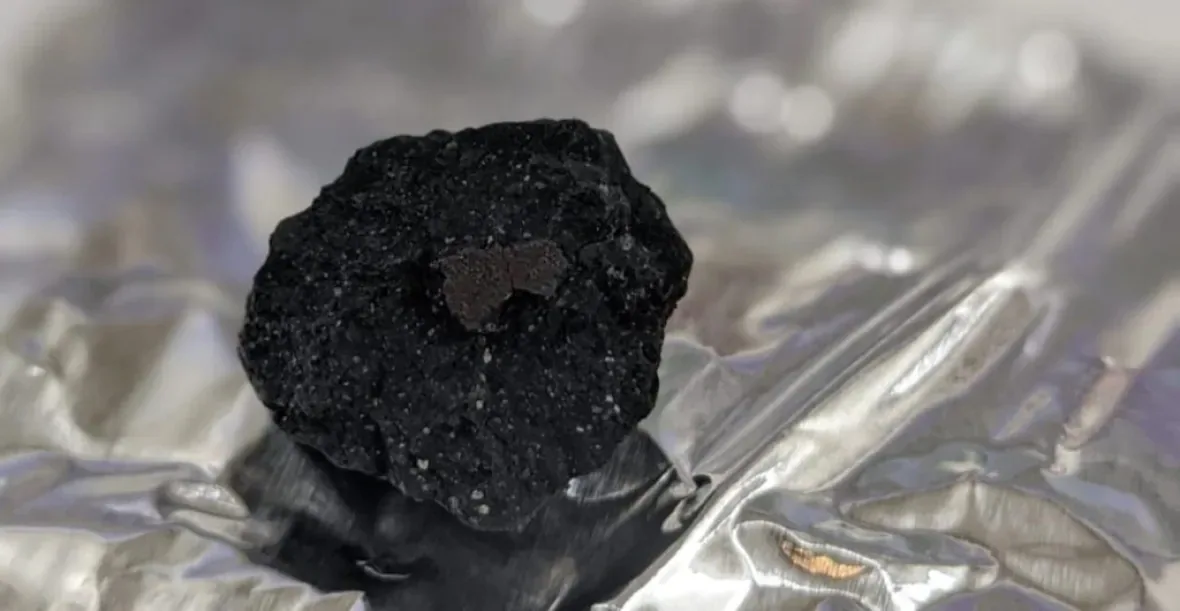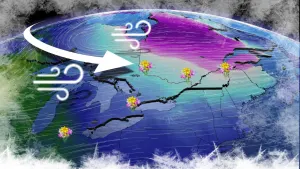
Canadian researchers help locate extremely rare UK meteorite
Canadian researchers have helped discover and study a rare meteorite that fell over England in February. The space rock contains the ingredients that make up our solar system.
Scientists recovered nearly 300 grams of the meteorite in Winchcombe, England, this week.

A fireball was seen over western England on Feb 28 and lasted about six seconds (Supplied by UK Fireball Alliance)
The meteorite is a very rare type of space rock, called carbonaceous chondrite, which remained in a deep freeze for the last 4.5 billion years, untouched by any heating.
Read More: Got your hands on a space rock? Here's how to know for sure
"So far, this is only the fifth meteorite of this type with a known orbit, and the most pristine one because it was recovered immediately after the fall," said Denis Vida, a Western University scientist in London, Ont., who figured out where on Earth the meteorite would have landed after it was seen in the sky on Feb. 28.
Finding something so rare, so quickly after it came from outer space is a scientific marvel, Vida said, and recovering so much of such a pristine meteorite is incredible.
"Imagine you take some eggs, flour, and sugar. You follow a recipe, mix them together and bake them in the oven. Voila, you have nice cake," said Vida. "The cake is our solar system. Baked, mixed, changed. In this analogy, carbonaceous chondrites are a chunky mix of eggs, flour and sugar that somehow ended up in the freezer, and we're using them now to figure out how the cake, in this case the solar system, was made."

This type of meteorite has never fallen in England before. (Supplied by Trustees of the Natural History Museum, London England)
The meteorite contains presolar grains, which are small dust particles even older than the Sun.
Read More: Want to find a meteorite? Expert Geoff Notkin tells us how!
"They are rare, direct evidence that we have for liquid water outside the Earth," Vida said. "Some contain up to 20 per cent water, and are full of organic compounds, including amino acids."
Vida, a meteor physics postdoctoral associate at Western University, coordinates an international effort by amateur and professional astronomers to locate meteorites and determine where they came from in the solar system.
The Global Meteor Network and the UK Fireball Alliance captured footage of the Winchcombe meteorite on Feb. 28 and contacted Vida so he could compute the fireball's trajectory, using the university's state-of-the-art meteor trajectory software.
This article was originally published on CBC News London.









